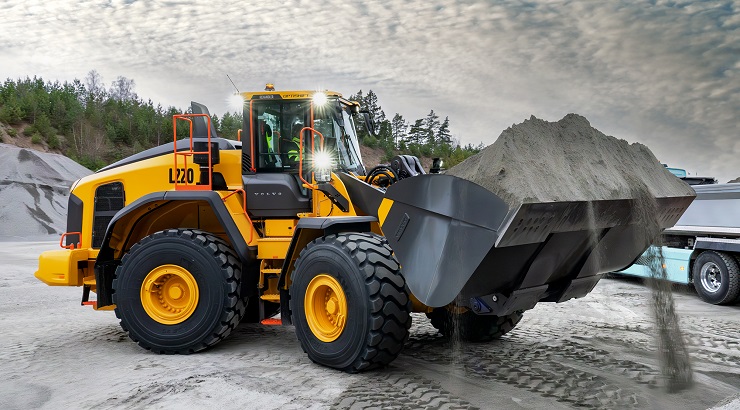Heavy Equipment
Volvo Debuts 5 Next-Gen Loaders in Major Rollout
The new models mark Volvo’s most ambitious year of innovation.

Volvo Construction Equipment has unveiled plans to release five fully redesigned large wheel loaders in 2025, continuing its aggressive modernisation streak across its product range.
The new models—L150, L180, L200 High Lift, L220, and L260—are part of what Volvo calls its “most ambitious” year of innovation to date.
The announcement follows major redesigns of Volvo’s midsize and large excavators last June, and a revamped range of articulated dump trucks rolled out in January.
The next-generation loaders, which weigh between 53,131 and 85,980 pounds and offer up to 414 horsepower, are built with performance, efficiency, and sustainability in mind.
“Our launches over the past year have been quite ambitious, and that’s because we’re committed to improving and tailoring our products and services to meet the evolving needs of our customers,” said product manager Eric Yeomans.
Volvo previewed one of the models—the L260—at this year’s World of Asphalt, offering the public a first look at the series. The machines come packed with features intended to improve productivity and ease of use on site.
Among the highlights are new load-sensing hydraulics that make lifting and lowering faster and more responsive, as well as an automatic bucket levelling function in both dump and curl positions. For added convenience, the optional Auto Bucket Fill system controls throttle and hydraulics to ensure consistent loading.
The machines also feature Smart Control, an efficient engine mode now activated by default. According to Volvo, it “lowers fuel consumption by up to 4% without compromising productivity.”
Additional systems like Load Assist offer on-board weighing, operator coaching, and tyre-pressure monitoring. A newly added load ticket function is aimed at streamlining invoicing on-site.
Performance also gets a major boost thanks to Volvo’s D13J engine, synchronised with the company’s transmission and axles. The engine “delivers more torque, faster acceleration, and smoother operation,” the company said.
Volvo’s OptiShift system, which includes the Reverse by Braking feature, reduces fuel consumption and increases comfort by using service brakes instead of the torque converter when switching directions in short-cycle loading.
RELATED: Volvo’s Plan to Turn Excavators Into Cost-Saving Machines
The L220 and L260 models will also come with automatic traction control. As Volvo noted: “Volvo torque parallel linkage delivers high breakout torque and parallel movement throughout the lifting range… For long-lasting performance, the lifting arm has double sealing on each of the pins.”
In line with broader sustainability goals, the loaders are compatible with hydrotreated vegetable oil (HVO), offering a lower-emission alternative to conventional diesel fuel.
Volvo has also refreshed the operator environment. A larger 12.8-inch Co-Pilot touchscreen, enhanced storage, new cupholders, USB ports, and optional seat heating/cooling are among the upgrades. The new layout allows users to control cameras, climate and machine data all from a single interface.
For safety and visibility, the optional Volvo Smart View provides a 360-degree camera feed, while an updated collision-mitigation system warns operators of obstacles even at slow reverse speeds.
On the maintenance side, Volvo has added a 70-degree cab tilt, brake wear indicators, and a new work light under the grille.
A battery disconnect switch and new harness anchor points improve safety and serviceability. ActiveCare Direct, Volvo’s 24/7 telematics monitoring system, is also available.
Volvo’s latest rollout reflects a growing demand for cleaner, smarter, and more capable machinery across the construction industry.
As Yeomans summed it up, “We’re not just making changes for the sake of it—we’re making real, useful improvements that solve problems for our customers on the ground.”














